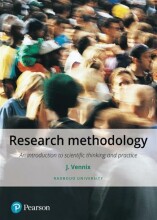Organisations as barriers to change
3 important questions on Organisations as barriers to change
What is the difference between institutional work and institutional entrepreneurship?
Institutional entrepreneurship are the activities of actors who have an interest in a particular institutional arrangement and who leverage resources to create new institutions or to transform existing ones.
Note that all institutional entrepreneurship is institutional work. But not all institutional work is institutional entrepreneurship, since the first is a more broad term.
Organizations are important for the sustainability transformation, since they have a main contribution in the greenhouse gass emission in the world. However, due to limited liability corporations cannot be held responsible. Elaborate on the term corporations as legal persons and why investors do not want to invest money regarding liability.
especially small investors do not want to invest money into a company when they can be help liable for company debts. Therefore, the question arises will the company behave responsible if no person is responsible for its debts?
The research of Wright & Nyberg (2017) identifies how and why corporate environmental initiatives deteriorate (verslechteren) over time. What was the main answer to the question why it detoriates and what was the main underlying problem? This way you describe the model high level.
The model of Wright & Nyberg (2017) shows the translation of grand challenges into corporate practices, involving a dialectical process of responding to critique and criticism. The process reveals the tension associated with competing demands: environment vs doing business. Over time, continuous critique and reassessment result in compromise in favor of a narrow profit motive.
The question on the page originate from the summary of the following study material:
- A unique study and practice tool
- Never study anything twice again
- Get the grades you hope for
- 100% sure, 100% understanding
































